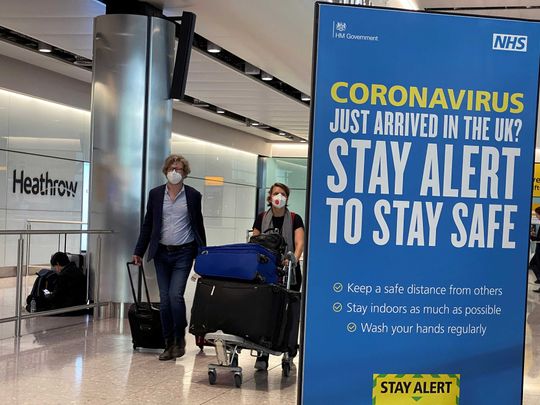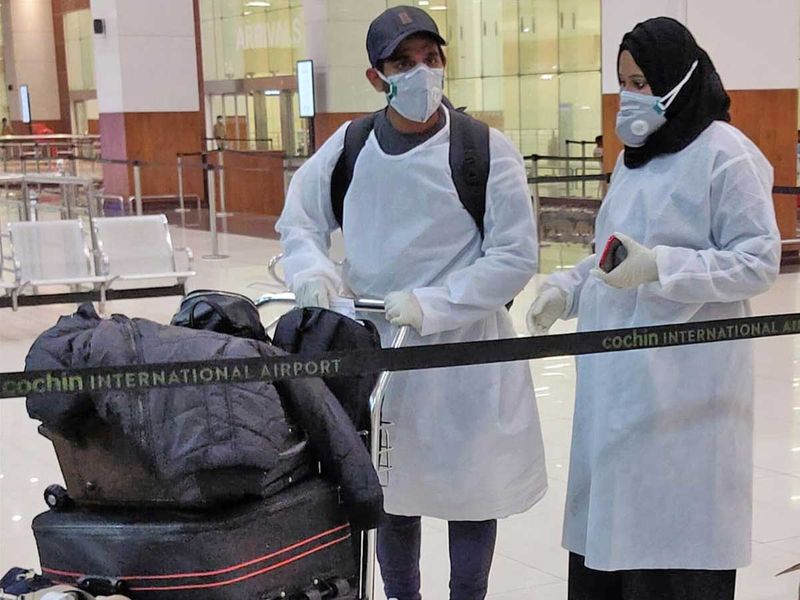COVID-19 impact: Quarantine worries will keep away travellers for some time

Dubai: The need to quarantine, whether self-imposed or not, will come in the way of any immediate recovery for air travel once flights resume.
“Quarantining will make travel impracticable - 86 per cent of travellers are somewhat or very concerned,” said Muhammad Albakri, Regional Vice-President at International Air Transport Association. “And 81 per cent won’t consider travelling if it involves a 14-day quarantine period.”
This is what UAE and Gulf carriers will need to factor in once they re-launch partial services in phases over the coming weeks.
Travellers too, especially those who are still thinking about a summer break away, too will need to do some heavy thinking before making any bookings.
“We need to get an official update from tourism boards about the quarantine measures in place at destinations,” said Mohammed Zuber, Manager - holiday department, Musafir.com. “If travellers need to spend two weeks in quarantine, they need to spend almost a month on a holiday, which is impossible.
“There must be a clear indication that people can travel without a quarantine or that a vaccine has been discovered. It will take some time for a resurgence in demand for proper holiday packages.”
Another factor resulting in uncertainty is that there are no standard quarantine measures being adopted. For instance, Sweden and Taiwan have not implemented quarantine measures.
But, destinations in the Middle East and India still have mandatory quarantines in place. Not just that, the quarantine programme varies from state to state in India.
Seek out alternatives
IATA’s Albakri is clear where a solution lies – there’s a need for options to quarantine if air travel has to get some sort of immediate lift. The air industry grouping has proposed a temporary approach to biosecurity that provides passengers confidence to travel safely, as well as inject confidence to governments that they are protected from importing the virus.
A different sort of Bubble theory
The travel industry is counting on the concept of air bridges or travel bubbles for a resumption of demand. These will allow countries to establish travel connections with regions having similar levels of infection, potentially allowing citizens to cross borders without the need to quarantine.
Taking their time
No leisure holiday bookings are being made these days, and corporate travel too has come to a halt. “Prior to COVID-19, we had leisure travel, business leisure, VFR (visiting family and relatives) and annual vacation travel,” said Jamal Abdul Nazar, CEO of Cozmo Travel. “After COVID-19, we only have one travel: repatriation. But this is happening at a snail’s pace.”
However, travel industry executives insist there is pent-up demand – it’s only the question of when that will happen that’s missing right now.
Some travel websites said enquiries were already trickling in for holiday packages during Eid Al Adha break. However, with most people coping with a pay cut in some form or the other, enquiries are mostly for budget-friendly destinations within 3- to 4-hour flying hours from the UAE.
Also, most employees at organisations had to use up their annual leaves during the time commercial activity was suspended to combat the virus. Organisations felt it was better employees use these up and then return to work with a clean slate.
Winter normalcy?
By the time the situation returns to some normalcy, it could be October-November. But travel to destinations in the US, Europe, UK and Australia will also not be in heavy demand given the personal circumstances of many residents in the UAE. The job situation will take a further two to three months to offer clarity of where the economy and businesses are headed.
People are more likely to opt to stay closer to home at first, with local travel and staycations making a comeback.
“Having delved into the millions of travel wishlists created by travellers in March and April, in-country stays feature in over half,” said a spokesperson at Booking.com. “That’s a clear jump from same time last year, when domestic accounted for a third of those who did wishlists then.”
But will they remain just wishlists for now?


Comments